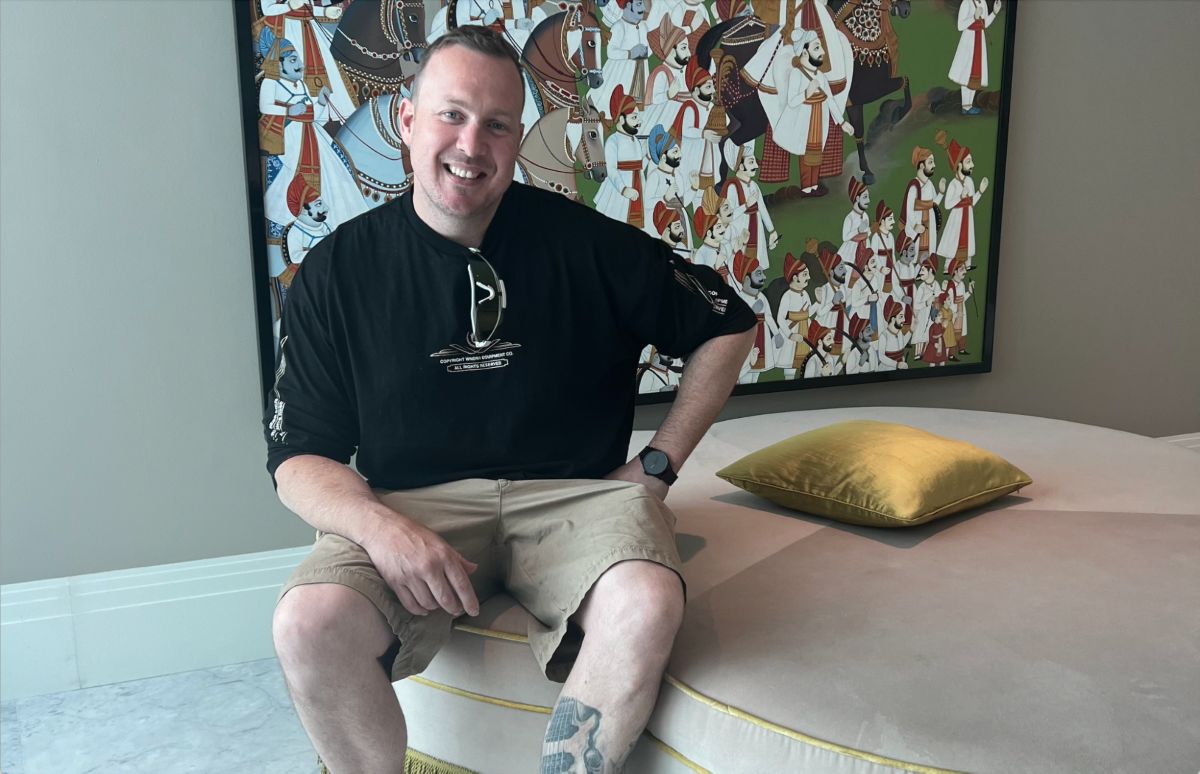Image Commercially Licensed From: Unsplash
As a CEO, it’s important to look at the workplace through different lenses. For Jayzen Patria, founder of the revolutionary Lead With Your Brand™ system, his multicultural background has given him a unique perspective on diversity, equity, and inclusion.
With a white mother and a father of Asian Pacific Islander and Hispanic descents, he grew up learning how to “code switch” and see the world from different viewpoints. As a member of the LGBTQ+ community, he brings yet another lens to the table
All of these experiences have made it easier for him to understand that everyone comes from different backgrounds, and their experiences may not be the same as others who may look the same.
Patria is widely considered America’s most sought-after personal branding expert advocating for diversity and empowering individuals to discover their true brand voice. This enables them to bringing their authentic selves to work and leading transformative impact in organizations.
One example of this has been in his role as the architect of NBCUniversal’s Talent Lab, where he helped create a branded corporate university. This was an essential part of building a common culture after Comcast acquired NBCUniversal from General Electric. The Talent Lab’s approach moved away from commodity-based training and instead focused on culture-based training. By developing a brand that employees wanted to become a part of, NBCUniversal’s Talent Lab became a popular learning destination.
The coveted keynote speaker, facilitator and consultant’s approach to personal branding is centered around authenticity. He helps individuals identify what makes them unique and encourages them to showcase the best version of themselves.
This means asking questions like “Who am I?” and “What do I uniquely know?” By identifying these qualities, individuals can turn up the volume on their personal brands and lead with them in a strategic and competent way.
“The way that I approach personal branding is really through a lens of authenticity, but with the caveat that I actually don’t like it when people say that they’re authentic. The real question is, ‘You are authentically what?’ When I work with people I’m constantly asking the question, ‘In your career, are you a coffee, or are you Starbucks?’”
Whether in giving a TEDx talk, an international keynote address, or in an interview with Entrepreneur, he always asks the same thing: “Are you a coffee: a commodity-based worker that is interchangeable? Or are you a super-premium worker that people are willing to wait in line and pay more for, such as with Starbucks?”
When he works with employees or executives, what he is helping them to really identify is makes them unique. And what makes them uniquely them. The way that starts is by getting away from them trying to be somebody else.
“I have executives come to me all the time and say they want to be like Oprah or Sheryl Sandberg. The reality is there’s only one Oprah. What you really want to be is the best you that you can be.”
When it comes to diversity, equity, and inclusion (DEI) and belonging, Patria believes in an intersectional approach. He recognizes that every person’s experience is intersectional and unique. By starting from this standpoint, organizations can create equitable experiences where everyone can contribute to the bottom line. “It’s not just about checking a box but understanding how to be inclusive of people with different backgrounds and experiences,” he says.
Patria’s expertise and unique perspective on diversity, equity, and inclusion make him an invaluable asset to any organization. By helping individuals find their true brand voice and organizations create cultures that support it, he successfully transforms organizations from the inside out.
Patria believes that as executives and leaders, it’s important to recognize that employees today are unlikely to stay with a single company for their entire careers. Therefore, the real question is not how to retain employees for life, but how to utilize and get the best out of them while working for you. “Personal branding can play a critical role in achieving this goal by empowering employees to showcase their unique skills, backgrounds, and perspectives.”
According to him, personal branding can foster a culture of innovation and creativity within an organization by encouraging employees to bring their greatest ideas to the table and work collaboratively.
“When everyone is encouraged to be their authentic selves and show up to work on-brand, it leads to a diversity of opinions and perspectives that can drive innovation and keep an organization competitive. Conversely, when everyone is forced to wear the same mask, it can stifle creativity and hinder innovation.”
In thinking about implementing a personal branding system, such as his Lead With Your Brand™ system, Patria advises companies first to start with a clear understanding of their business strategy and objectives. For example, if the goal is to increase sales, the branding program should help the salesforce identify and showcase their unique skills to super-serve customers and clients. If the goal is to drive innovation or inclusion, the program should help employees develop and showcase the skills and qualities needed to achieve those goals.
Finally, he notes that personal branding can also help employees navigate career inflection points and find the best fit for their unique brand. By giving employees permission to be themselves and encouraging them to bring their best ideas to the table, companies can create a culture of innovation and creativity that benefits both employees and the organization as a whole.
For more information on Patria and his Lead With Your Brand™ system and podcast, or to book him to lead your next keynote, workshop, or more, visit www.jayzenpatria.com.









